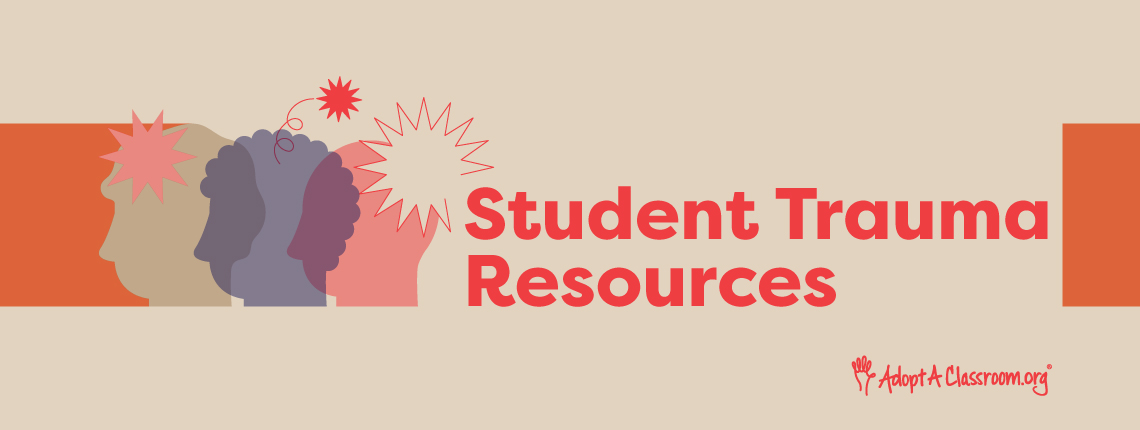Teaching has been immensely challenging over the last few years. Teachers have had to facilitate learning in the face of traumatic events happening in their communities and worldwide. While it’s important to address these events in the classroom, it can be hard to sort through trauma-informed teaching practices to find the right way to speak to your students.
Whether your students are dealing with gun violence in their neighborhood or a school shooting across the country, they deserve a space to process and feel heard. AdoptAClassroom.org has gathered a few resources to help you support your students.
If you’re a teacher and you have a resource that has been helpful to you, please email us at info@adoptaclassroom.org and we may add your resource to our list.
Trauma-informed Teaching Resources for Traumatic Events:
Talking to Students About School Shootings and Gun Violence
In the wake of the Robb Elementary shooting in Uvalde, TX in 2022, Chalkbeat gathered articles written over the years on how to talk with students about gun violence.
The National Association of School Psychologists assembled a list of tips and talking points to walk teachers and parents through challenging conversations about violence.
The New York Times offers a guide to talking to kids about mass shootings, organized by age.
NPR offers advice on talking with students about school shootings, starting with listening to their questions and concerns.
For middle and high school students, it may be appropriate to integrate a few books about gun violence into your curriculum. These books will help facilitate conversation throughout the year, in addition to immediate responses after major events. The Chicago Public Library assembled a list of books about gun violence to help teens cope.
Responding to Trauma in the Classroom
Immediately After an Event
With the constant saturation of news on the internet, it’s likely that students – particularly those in middle and high school – will be exposed to current events. NPR shared suggestions from child development experts on the best next steps after a scary event happens.
The American Academy of Pediatrics offers a brief video overview on ways caregivers can speak with children after any catastrophe.
Integrating Long-term Trauma-informed Teaching Practices in Your Classroom
To start addressing trauma in your classroom, you first need to understand some of the research on how trauma affects students’ brains and behaviors. The NEA offers a helpful overview.
Learning Justice offers a wider view of practices to implement for longer-term emotional safety and relationship building in your classroom. You can also check out this recent blog post on how to implement social-emotional learning in every day teaching.
Responding to Crisis Events in Your Community
Community crises can range from a school shooting to the death of a student in a car accident. The NEA has a free resource guide for administrators and other school leaders to prepare for crises and find ways to heal.
AdoptAClassroom.org Wants to Help
At AdoptAClassroom.org, we want to make sure that teachers have the resources they need to support their students. When teachers receive funds through AdoptAClassroom.org, they can spend those donations on the school supplies they need, when they need them.
Whether you’re looking for books to facilitate hard conversations or social emotional learning supplies to help students heal, you can get the supplies you need on AdoptAClassroom.org.
